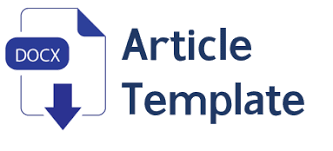Curriculum Reform: The Implementation of Concept-Based Curriculum and Instruction to Enhance Students’ Learning Outcome in Cambodia
Abstract
When education is the engine driver of the economic direction, teachers and curriculum are the driver and fuel to drive education to perfection and success. However, the current curriculum implementation and instruction are misaligned with society’s needs and alignment of21s t-century learnings and skills. Therefore; it can lead to learning compromised and skill mismatched for the labor market. This article aimed to review the significance of Concept-Based Curriculum and Instruction to improve student’s learning outcomes. It also underpinned the preparedness of Cambodian teachers to be adaptable to the CBCI. This study employed a systematic literature review on theoretical views and the practical aspects of the New Generation School project regarding teaching and learning approach. The findings revealed that Cambodia should shift focus to CBCI to increase students’ learning outcomes and responding to 21st-century learning. With the transformation, the constructivism approach used in NGS fitted best for the CBCI implementation. The success of CBCI execution undoubtedly correlates with teacher pedagogy and adequate physical infrastructure. The study suggested that constructivism should be widely used in the teacher education program. The strengthening of the in-service teacher training program, which highlights both subject contents and teaching method is needed. It is also important to taking heed of the school infrastructure and teaching and learning materials.
References
Erickson,H., Lanning,L & French,R. (2012). Concept-Based Curriculum and Instruction. Corwin, Sage.
Erickson.H. (2012). Concept-based teaching and learning. International Baccalaureate Organization.
Naron Hang-choun, Pruet Siribankpitak, Chayapim Usaho. (2018). Educational Management Strategy Reform to Enhance the Quality Citizenship in Cambodia. Ph.D. Thesis (p. 34). Bangkok.
Ngin, C. (2018). To What Extent Does the Cambodian Education Curriculum Prepare Students for a Knowledge-based Economy? Education Research Council (ERC)(1), 5.
Paige, J. (2009). The 21st Century Skills Movement. Educational Leadership, 9(67), 11.
Rani., A. (2014). Curriculum Reform: Theory of Curriculum—A Starting or a Final Point of Curriculum Reform. Sociology Stud, 4(10), 869‐880.
Richard, R. (2002). Intellectual character: What it is, why it matters and how to get it. Sanfrancisco: Jossey-Bass.



